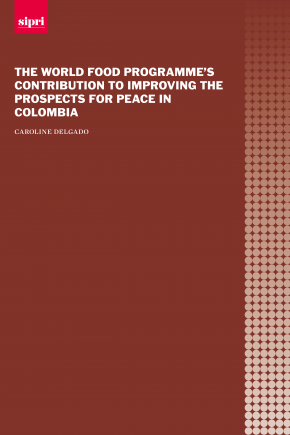The World Food Programme’s Contribution to Improving the Prospects for Peace in Colombia
This report on Colombia examines WFP programming and interventions following the 2016 Colombian peace agreement and investigates the role that WFP plays as the country transitions out of more than 50 years of armed conflict.
The report’s detailed findings are largely based on local field research involving qualitative assessment through in-depth interviews, focus group discussions and project site visits. Interviews were held with country office staff, project beneficiaries and other key stakeholders. The findings highlight the significant contributions of WFP programming to improving the prospects for peace, identify crucial conflict sensitivity concerns and suggest 15 actionable recommendations on how WFP’s contribution can be enhanced.
1. Introduction
2. Colombia context
3. Colombian case study approach
4. Findings: WFP’s engagement in Colombia
5. Cross-cutting components to improving the prospects for peace
6. Conclusions

